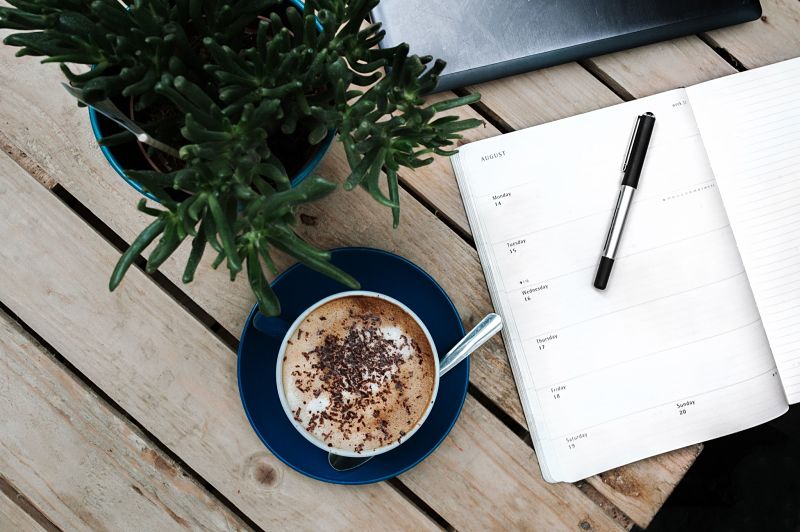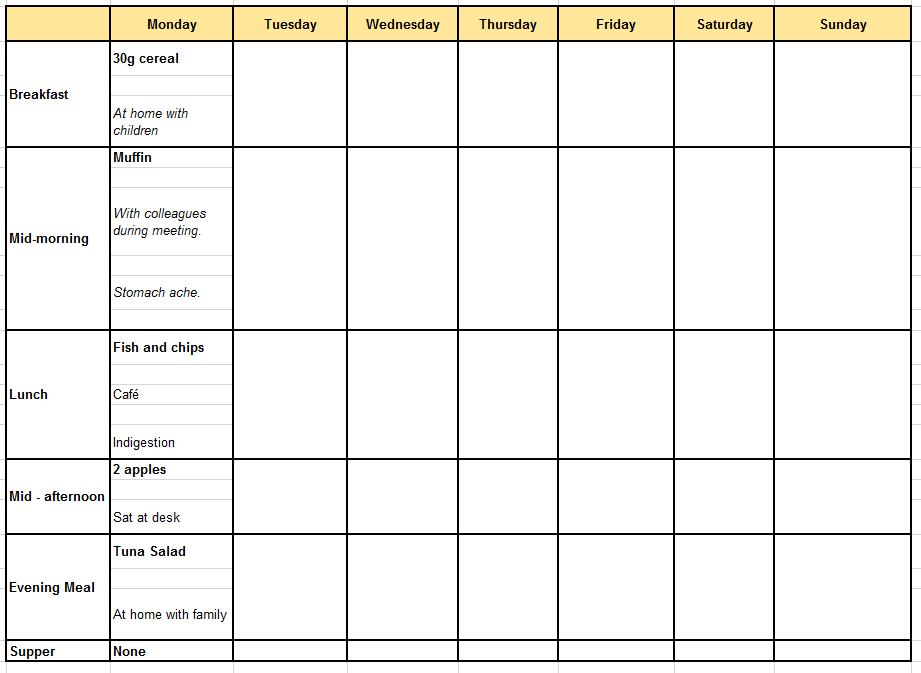
According to the National Diet and Nutrition Survey 1, fewer than a third of adults and only one in ten children are eating enough fruit and vegetables. Keeping a record of what you eat and drink on daily basis could help ensure that you achieve a balanced diet, identify food intolerances and maintain a healthy weight. A food diary has many benefits. Why not start one and see if you can improve your daily diet?
3 reasons to keep a food diary
1. Better nutrition
According to BBC nutritionist Kerry Torrens we should be eating 7 portions of fruit or veg a day, ‘Forget 5 and make it 7 a day – it sounds like a tall order but if you include at least one and preferably two servings of fruit or veg at every meal snack- you’ll get there.’
A food diary could help you spot, at a glance, any deficiencies in certain food groups. You may also notice that you are eating too many processed foods or high-sugar snacks. Balance is key to better nutrition– keeping a food diary can help you to achieve a more balanced diet by allowing you to track your daily eating habits.
2. Detect intolerances
The NHS suggests keeping a food diary to help you to detect possible food intolerances, ‘There are no tests for food intolerances, the only way to know if you have one is to monitor your symptoms and the food you eat. Try keeping a food diary, noting what foods you eat, any symptoms you have after eating these foods and when these symptoms come on.’
By keeping a simple record of what you eat and drink – and how it makes you feel- you can help yourself and your doctor to narrow down the foods that may be causing you issues. Common food intolerances include sensitivity to gluten, lactose and dairy.
3. Weight loss
It is important to keep track of your calorie intake if you are trying to lose weight. Within a healthy balanced diet, an average man needs around 2,500 calories a day and a woman around 2,000 calories. By keeping a food diary, you can quickly tally up the calories you are consuming in a day. A visual record of your diet can help you to see all of those ‘little extras’ that can soon add up and become calorific.
What a typical daily food diary should include
- • Amount of food/Drink
- • Type of food drink
- • Time eaten
- • Place eaten
- • Who you ate/drank with
- • Activity at time of eating/drinking
- • Any physical symptoms felt after eating/drinking
What a typical food diary might look like

You can create your own food diary template or download one of the many available for free online.
Always speak to a medical professional about dietary concerns or before changing your diet.
Sources
1. https://www.bbc.co.uk/news/health-18984025
2. https://www.nhs.uk/news/obesity/food-diary-helps-weight-loss/


